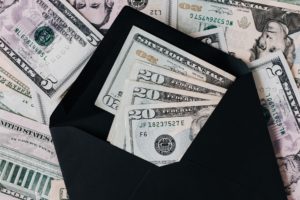Given the volatile and often overtly challenging nature of the forex market, it is little wonder that traders can find themselves questioning the wisdom of their real time transactions. Human error plays a significant role in sustaining losses as a financial market trader, with the relentless, 24 hour forex market providing a demanding environment that can hinder rather than empower decision making.
It is with this in mind that automated forex trading has become increasingly popular in recent times, as it is a method which relies on a pre-programmed strategy rather than human decision making or direct participation. While the individual strategy used will often vary, it will generally be based on technical indicators and fundamental analysis that triggers the automatic execution of trades through a particular trading program. It therefore removes the element of human interaction, and negates the risk that emotion will cloud your investment strategy.
The Automated Trading Championships: Popularizing a Forward Thinking Art
Now more than seven years old, the Automated Trading Championships have gained significant credibility as a competitive event and helped to increase recognition of the concept. Established to popularize automated trading and the subsequent application of the MQL5 programming language, it seeks to reward developers who create the most profitable program or platform. During the championship held in 2011 and 2012, four individual developers experienced victory and a cumulative cash prize of approximately $160,000.
While competitors and automated traders in general are able to invest in a host of financial products and derivatives, it is currency that remains one of the most popular vehicles. This is due to the fact that volatile price swings and the impact of economic trends continues to distinguish the foreign exchange an emotive market where traders can often give in to impulse or misguided instinct. The option of minimizing the influence of human instinct and automating trades according to informed and predetermined algorithms is therefore appealing, despite the fact that the global economic landscape shows signs of settling.
Can Automated Trading Thrive in the Modern World?
While detractors will argue that automated trading is counter-productive to market growth and capable of creating even more volatility, regulators have yet to prove this with any authority. Instead, eliminating human error and the issue of timing transactions within a volatile and 24 hour market place would appear to offer a far greater chance of long term profitability, at least on an individual level. With different options and trading strategies also available to suit individual tastes, traders can even select an exact portfolio to meet their needs.
The only question that remains is whether an automated trading system can ever replicate the natural instinct and perception boasted by experienced forex investors? For those who understand the market place, and more importantly the underlying laws that govern change and price movements, there may well be an understandable reluctance to place trust in a purely automated system. This is especially true in this age of technological advancement, where real-time news rooms and informational resources such as the Currencies Direct website have created a situation where software and human interaction can be used to create the ultimate strategy.




